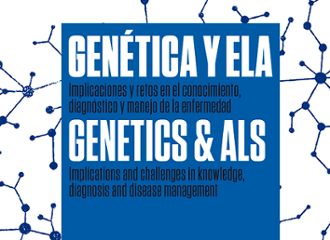Research projects
Start of main content
Neurorregeneración en la enfermedad de Alzheimer a través de la expresión de factores de pluripotencia in vivo
22st national competition for scientific and technical research
Aging and neurodegenerative diseases
Senior Researcher : Félix Hernández Pérez
Research Centre or Institution : Centro de Biología Molecular Severo Ochoa. CSIC - UAM
Abstract
Aging is the primary risk factor for most neurodegenerative diseases, including Alzheimer’s disease. For instance, the majority of Alzheimer’s cases are sporadic, with no known underlying cause, while only about 5% of cases are familial, caused by known genetic mutations and, therefore, heritable. Understanding these diseases requires investigating the processes that occur during neuronal aging. Additionally, a viable strategy to delay their onset would be to slow down the complex process of aging.
In 2012, Shinya Yamanaka and John Gurdon were awarded the Nobel Prize in Physiology or Medicine for their research on reprogramming differentiated cells to revert them to a pluripotent state, using what are now known as Yamanaka factors. Current strategies in regenerative medicine aim to reverse this process by reprogramming cells to restore the early stages of cellular development. It has been demonstrated that differentiated cells can be reprogrammed through the expression of transcription factors known as Yamanaka factors. In peripheral tissues, reprogramming strategies to address aging-associated diseases have shown promise in improving certain pathologies. However, this has not yet been demonstrated in the central nervous system (CNS).
The primary objective of this project is to study reprogramming with Yamanaka factors in the adult brain, using their conditional overexpression in a transgenic model that coexpresses both Yamanaka factors and aberrantly phosphorylated tau protein, which forms structures resembling the neurofibrillary tangles observed in Alzheimer’s disease patients. This project serves as a proof of concept to confirm the feasibility of in vivo CNS reprogramming in the context of neurodegenerative processes.
This research will deepen our understanding of the molecular causes of Alzheimer’s disease and explore the potential to prevent and/or reverse the disease using reprogramming factors, such as Yamanaka factors. The main implication of our work will be to demonstrate, as previously described in peripheral tissues, that overexpression of Yamanaka factors in the CNS can improve the phenotype observed in transgenic Alzheimer’s disease models. Furthermore, our results will strengthen ongoing efforts to validate potential reprogramming-based therapies. Studies in mice will allow us to analyze the signaling pathways involved in neuronal rejuvenation, thereby identifying new therapeutic targets.
-
 Activities related
Activities related
-
 Projects related
Projects related
-
 News related
News related
-
 Publications related
Publications related
 Activities related
Activities related
-
26
Jun
2024
Conferencias La aventura de la ciencia Madrid, Miércoles 26 de junio de 2024, 19:00 horas
-
13
Feb
2025
17th edition. Cycle of conferences and debates in science Digital Twins: Technological Advances and Application Opportunities Madrid, Thursday, 13 February 2025, 17:30 hours
-
18
Feb
2025
Session New Therapies for the Inflammation Treatment Madrid, Feb 18th, 2025, Tuesday. 4PM
 Projects related
Projects related
- Development and Application of saRNAs for the Treatment of Rare Monogenic Diseases 2024 Senior Researcher : María Luisa Cayuela Fuentes
- CHANNELOSOME RESCUING PEPTIDES IN THE TREATMENT OF ARRHYTHMIAS IN INHERITABLE HEART DISEASES 2024 Senior Researcher : José Jalife Research Centre or Institution : Centro Nacional de Investigaciones Cardiovasculares (CNIC). Madrid
- Mechanisms for sustaining mitochondrial genome integrity and function during hematopoiesis. 2024 Senior Researcher : Ana Victoria Lechuga Vieco Research Centre or Institution : Fundació Clínic per a la Recerca Biomèdica. Hospital Clínic. Barcelona
 News related
News related
 Publications related
Publications related


End of main content



